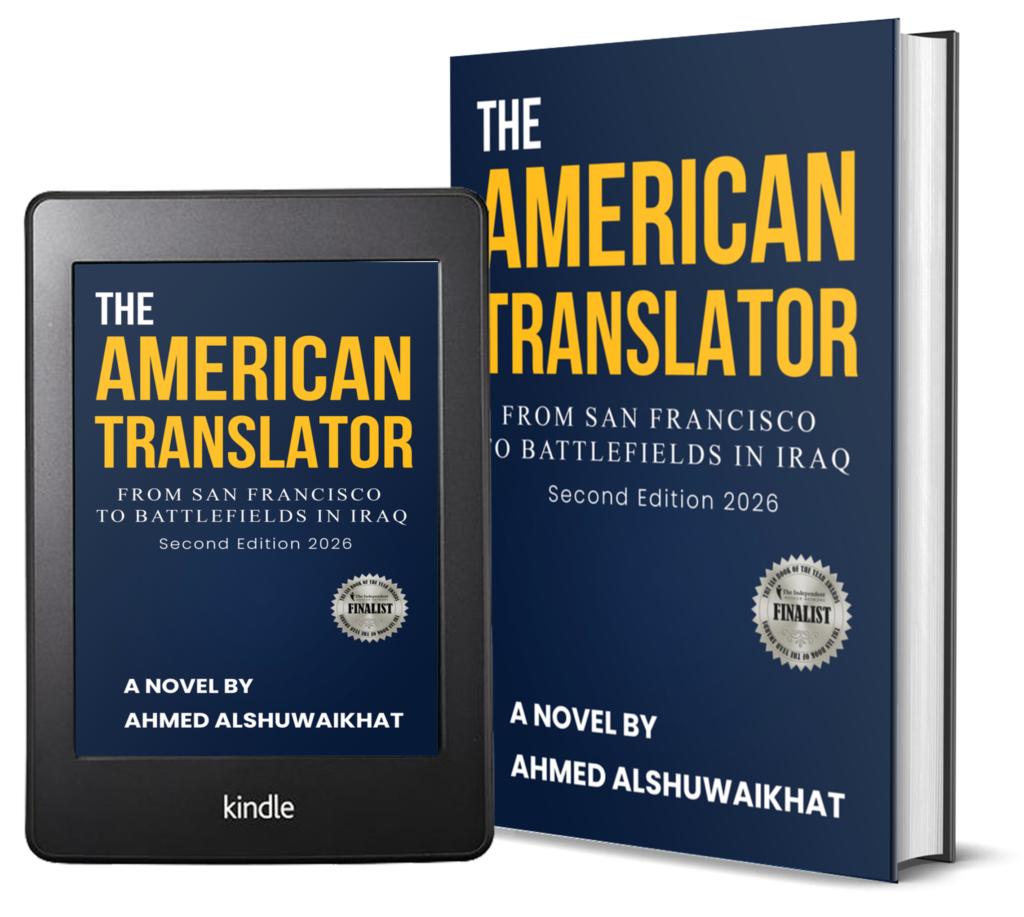ReadingAhmed Alshuwaikhat’s The American Translator has been a transformative experience that has deeply influenced my understanding of self-growth and personal discovery. As an avid reader of self-growth books, self-discovery books, and military books, I found this novel to be a powerful exploration of identity, conflict, and the complexities of the human experience. In this article, I will share the insights I gained from reading The American Translator, explain how its themes resonate with readers, and encourage others to reflect on their own journeys of self-growth.
Personal Insights Gained from Reading the Book
One of the most profound lessons I learned from The American Translator is the importance of empathy in understanding both ourselves and others. The protagonist, David Boccaccio, embarks on a journey that forces him to confront his beliefs and biases as he navigates the intricacies of war and cultural conflict. His role as a translator for the American military exposes him to the moral dilemmas faced by individuals caught in the crossfire of geopolitical tensions.
Moreover, David’s experiences reminded me of the power of empathy in fostering connection and understanding. The novel illustrates that true self-growth often requires us to step outside our comfort zones and engage with perspectives vastly different from our own. Consequently, this realization has encouraged me to approach my interactions with others more thoughtfully, recognizing that everyone has a unique story shaped by their own experiences.

The American Translator
How the Themes of Self-Growth and Discovery Resonate with Readers
The themes of self-growth and discovery in The American Translator resonate deeply with readers because they reflect universal struggles and aspirations. Not only is David’s journey about surviving the external challenges of war, but it is also about understanding his own identity and grappling with the consequences of his actions on those around him. This duality of internal and external conflict is something many readers can relate to, as we all wrestle with our sense of self amid life’s challenges.
Furthermore, the novel’s exploration of cultural identity and the search for meaning in a chaotic world serves as a powerful reminder that self-discovery is an ongoing process. Alshuwaikhat’s portrayal of the characters’ struggles encourages readers to reflect on their own journeys and consider the ways in which they have evolved through adversity. As a result, The American Translator prompts us to examine how our experiences shape our identities and how we can learn and grow from the challenges we face.
Encouragement for Readers to Reflect on Their Own Journeys
As I turned the final pages of The American Translator, I felt a renewed sense of purpose in my own path of self-growth. The novel is a reminder that personal development is not a linear journey—it is filled with twists, turns, and moments of introspection. Therefore, I encourage readers to reflect on their own life experiences and the lessons they have learned along the way.
For instance, think about the moments in your life that have challenged you and shaped your understanding of yourself. How have these experiences influenced your beliefs, values, and relationships? Just as David navigates the complexities of his identity in the midst of war, we too can find meaning in our struggles and emerge stronger on the other side.
In a world often divided, The American Translator reminds us of the importance of empathy, understanding, and the continuous journey of self-discovery. Consequently, as readers, we have the opportunity to engage with these themes and apply them to our own lives, fostering personal growth and deeper connections with others.
Conclusion
In conclusion, The American Translator has left a lasting impact on my understanding of self-growth and personal discovery. Through its engaging narrative and complex characters, the novel encourages readers to reflect on their own journeys and the valuable lessons learned along the way. Additionally, as a significant addition to the genres of self-growth books, self-discovery books, and military books, Alshuwaikhat’s work serves as a powerful reminder of the transformative power of literature.
If you’re seeking a thought-provoking read that explores identity, self-discovery, and the human experience amidst the backdrop of war, I highly recommend The American Translator. You can purchase it now on Amazon and embark on your own journey of self-reflection and growth.










